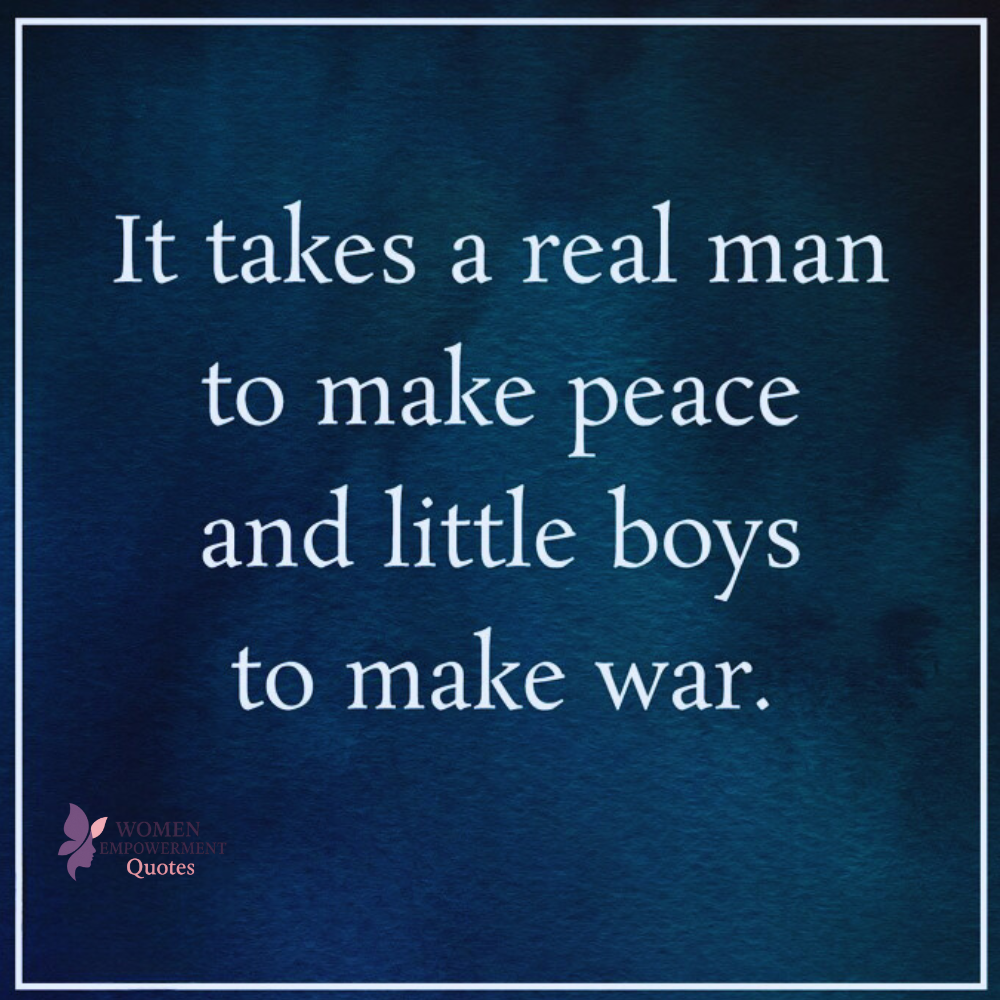
The Power of Choosing Peace
“Any fool can make war, but it takes a real man to make peace.”
This profound wisdom captures the essence of true maturity and leadership. While aggression and dominance might seem like demonstrations of strength, genuine power lies in the ability to foster understanding and harmony. Making war is often the easier path—fueled by impulse and shortsightedness. The path to peace, however, requires character, wisdom, and profound courage.
Throughout history, we’ve witnessed leaders who, driven by ego and hunger for control, have plunged nations into chaos. Yet we also celebrate those extraordinary individuals who chose reconciliation over vengeance. Nelson Mandela exemplifies this higher wisdom—emerging from 27 years of imprisonment not with bitterness, but with a vision of unity that transformed South Africa’s future.
Redefining Leadership
True leadership transcends domination and control. At its core, leadership is about creating harmony and resolving conflicts constructively. The “real man” referenced in our opening quote is one who rises above petty disputes, maintains perspective on what truly matters, and works tirelessly to establish peace.
This form of leadership demands exceptional strength, patience, and deep psychological insight. It’s about building bridges rather than walls and finding common ground among diverse perspectives. Such leaders create legacies that endure for generations, remembered not merely for their authority but for the stability and harmony they cultivated.
Essential Qualities of Authentic Leadership
- Vision: Creating and articulating a compelling direction that inspires others
- Integrity: Consistently demonstrating strong moral principles that earn trust
- Communication: Mastering both speaking and listening to facilitate understanding
- Empathy: Genuinely understanding others’ perspectives and needs
- Decisiveness: Making thoughtful choices even amid uncertainty
- Emotional Intelligence: Managing both personal emotions and interpersonal dynamics
- Adaptability: Adjusting approaches when circumstances change
- Accountability: Taking responsibility for outcomes, both positive and negative
- Inspiration: Motivating others through authentic encouragement
- Problem-Solving: Analyzing complex situations and developing effective solutions
- Humility: Recognizing limitations and remaining open to learning
- Resilience: Persisting through challenges with determination
- Innovation: Encouraging creative thinking and unconventional approaches
- Team Building: Developing cohesive groups that leverage diverse talents
- Strategic Thinking: Seeing the broader context while planning for the future
The Art of Conflict Resolution
Conflict resolution represents a crucial skill in both personal and professional realms. This art involves managing disagreements constructively—not merely settling disputes but addressing root causes while strengthening relationships.
Effective conflict resolution begins with understanding the true nature of the disagreement. Conflicts typically emerge from differences in values, perceptions, or desires. In professional settings, they might arise from resource competition or communication breakdowns. In personal relationships, unmet expectations often fuel tension.
Communication forms the cornerstone of conflict resolution. This includes:
- Practicing active listening without judgment
- Expressing thoughts clearly and respectfully
- Using “I” statements rather than accusatory language
- Finding common ground to build upon
- Taking a collaborative problem-solving approach
- Managing emotions with awareness and control
Sometimes conflicts require neutral third-party mediation. Regardless of approach, effective resolution doesn’t end with agreement—it continues through implementation and reconciliation efforts that strengthen relationships.
Applying This Wisdom Daily
While these principles apply to global leadership and international conflicts, their power extends to everyday interactions. Each of us makes choices daily—whether to escalate tensions or foster understanding in our families, workplaces, and communities.
Choosing peace requires emotional intelligence, empathy, and a commitment to justice. By embracing these values in our daily lives, we contribute to a more harmonious society, beginning with our immediate circles of influence.
Daily Affirmation
“I am a beacon of peace and stability, choosing understanding over conflict, and wisdom over impulsivity.”
Timeless Wisdom on Peace and Leadership
- “Peace is not merely a distant goal that we seek, but a journey that we walk with every step we take.” — Mahatma Gandhi
- “An eye for an eye only ends up making the whole world blind.” — Mahatma Gandhi
- “You must be the change you wish to see in the world.” — Thich Nhat Hanh
- “Do not wait for leaders; do it alone, person to person.” — Mother Teresa
- “The greatest glory in living lies not in never falling, but in rising every time we fall.” — Nelson Mandela